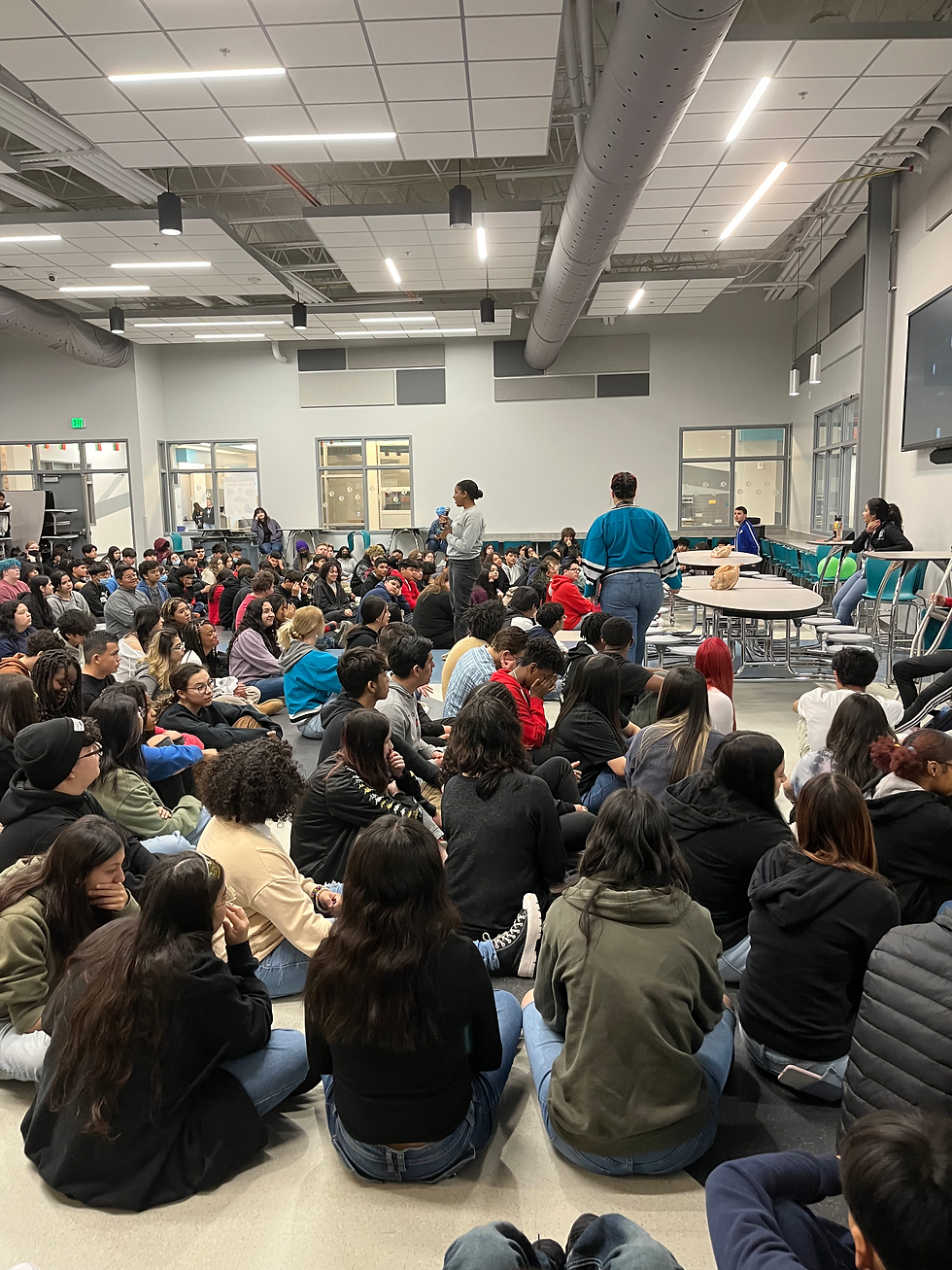Closing the Loop in the School Cafeteria
- spencer9072
- Jun 6, 2023
- 2 min read
Updated: Jul 24, 2023

Sustainable food systems often conjure an image of idyllic farms, airy farmers' markets, and well-plated meals of fresh produce – ”farm-to-table” makes many consumers feel more connected to their food and their place in the food system. Localizing food systems to reduce emissions from transportation is certainly important, but even if you are harvesting vegetables from your backyard, the most impact your food has on the environment happens after it leaves your plate.
When leftover food is tossed into the garbage, it goes to the landfill. Landfills essentially operate by tightly wrapping all of our trash in plastic and burying it under dirt. This creates an anaerobic environment (one with little oxygen) – under these conditions, the bacteria that decompose food and other organic materials produce methane, a greenhouse gas with a global warming potential 25 times greater than CO2. Considering that food reaches landfills more than any other material in our everyday trash (about 24% of landfills), reducing food waste that goes to landfill is a major leverage point in mitigating negative effects on the environment.
So, food waste – and particularly what we do with it – matters a lot. In the sustainability field we often talk about finding the easiest leverage points, opportunities for change that require small behavioral adjustments that have big impacts (for example, tossing a plate of food scraps into the compost, rather than the garbage).
This year, the waste hauler for the city and Denver Public Schools ended their composting contract, resulting in schools losing their cafeteria composting program. The contract was ended due to the contamination of compost coming from the schools – when too much trash ends up in compost streams, it creates major issues. Cafeteria composting is a big leverage point for positive change as hundreds of pounds of food waste is generated in a school cafeteria each week. But composting programs need to be introduced properly, thoughtfully, and incrementally.
This April, SustainEd Farms piloted a cafeteria composting program with DSST Elevate to help them reach their goal of carbon neutrality. In the spring of 2022, SustainEd Farms staff and DSST Elevate Sustainability Club members conducted a trash audit of the school cafeteria. The team ripped open trash bags and sorted materials by landfill, recycling, and compost. Based on our single-instance trash audit, DSST Elevate was producing approximately 5,452.4 lbs of food waste per year in the cafeteria alone. This translates to 65.8 lbs of CO2 equivalent per day from its food waste, equating to 11,317.6 lbs of CO2 equivalent per year.
SustainEd Farms and DSST Elevate are partnering with Wompost to help close the loop and put compost into the garden!




Comments